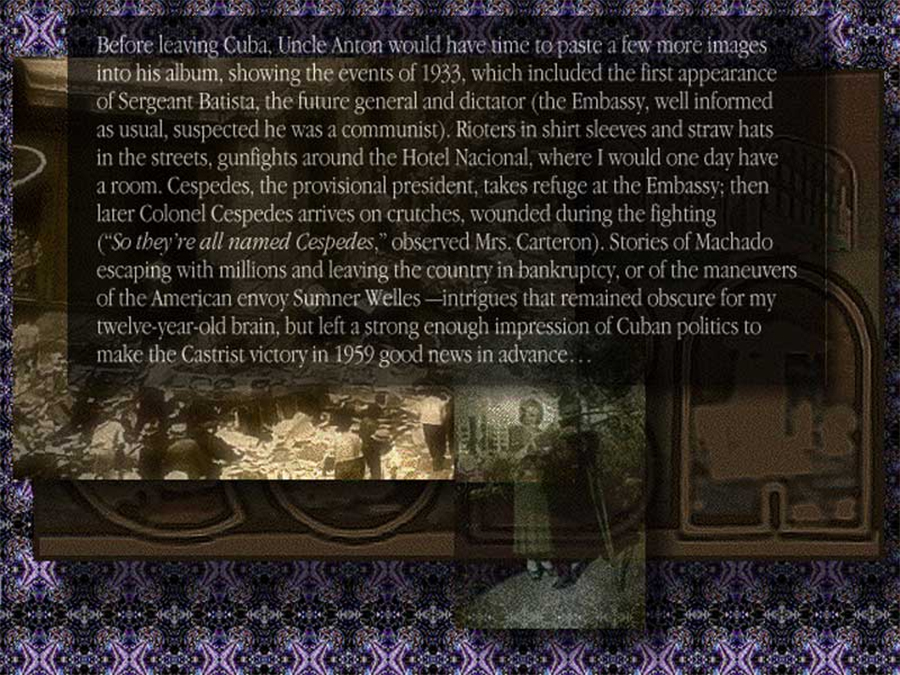cuba child stack014

- Id : 965
- Catégorie : PHOTO
- Séquence : Cuba Child
- Card : cuba child stack014
Navigation :
Médias :
No clipNo sound
Text :
Before leaving Cuba, Uncle Anton would have time to paste a few more images
into his album, showing the events of 1933, which included the first appearance
of Sergeant Batista, the future general and dictator (the Embassy, well informed
as usual, suspected he was a communist). Rioters in shirt sleeves and straw hats
in the streets, gunfights around the Hotel Nacional, where I would one day have
a room. Cespedes, the provisional president, takes refuge at the Embassy; then
later Colonel Cespedes arrives on crutches, wounded during the fighting
("So they're all named Cespedes," observed Mrs. Carteron). Stories of Machado
escaping with millions and leaving the country in bankruptcy, or of the maneuvers
of the American envoy Sumner Welles intrigues that remained obscure for my
twelve-year-old brain, but left a strong enough impression of Cuban politics to
make the Castrist victory in 1959 good news in advance.